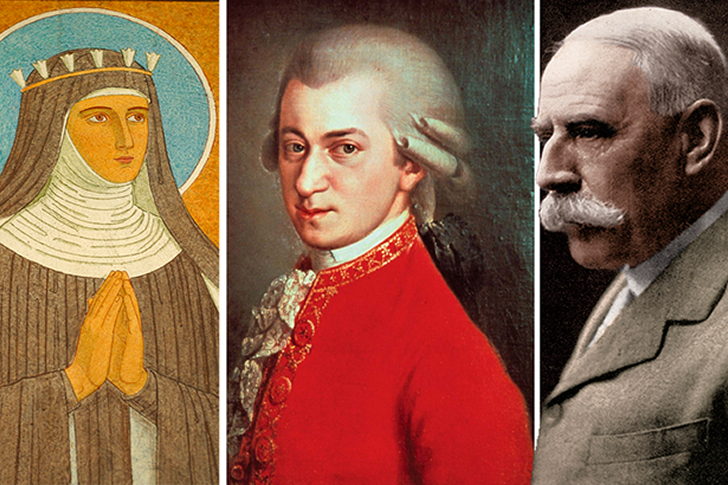Classical music has a rich and vibrant history, with countless composers who have made enduring contributions to the genre. These composers have shaped the course of music with their creativity, innovation, and mastery of composition. Their works continue to captivate audiences and influence musicians and composers to this day. Here, we present the greatest classical music composers in history, whose timeless creations have left an indelible mark on the world of music.
Johann Sebastian Bach (1685-1750):
Bach is widely regarded as one of the greatest composers of all time. His compositions spanned various genres, including sacred and secular works, and showcased his technical brilliance, intricate counterpoint, and profound musicality. His masterpieces, such as the Brandenburg Concertos and the Well-Tempered Clavier, continue to inspire awe and admiration.
Wolfgang Amadeus Mozart (1756-1791):
Mozart, a child prodigy, composed over 600 works in his short life, encompassing symphonies, operas, concertos, and chamber music. His unparalleled gift for melody, innovation, and emotional depth has made him an iconic figure in classical music. Works like Symphony No. 40 in G minor and the opera The Marriage of Figaro remain beloved staples of the repertoire.
Ludwig van Beethoven (1770-1827):
Beethoven’s music marked a transition from the classical to the romantic era. His symphonies, including the monumental Symphony No. 9, showcased his revolutionary approach to composition, pushing the boundaries of form and expression. Beethoven’s works are known for their emotional intensity, power, and profound musical statements.
Franz Schubert (1797-1828):
Schubert’s compositions bridged the gap between classical and romantic styles. He was a prolific composer, particularly known for his lieder (art songs), symphonies, and chamber music. Schubert’s melodies are characterized by their beauty, lyricism, and introspective nature, evident in works such as the “Trout” Quintet and the “Unfinished” Symphony.
Pyotr Ilyich Tchaikovsky (1840-1893):
Tchaikovsky’s compositions are revered for their emotional depth, lush orchestration, and memorable melodies. His ballets, such as Swan Lake, The Nutcracker, and Sleeping Beauty, have become some of the most beloved and frequently performed works in the classical repertoire.
Johann Strauss II (1825-1899):
Known as the “Waltz King,” Strauss popularized the waltz and composed numerous orchestral and dance music pieces. His iconic waltzes, including “The Blue Danube” and “Tales from the Vienna Woods,” continue to captivate audiences with their elegance, charm, and infectious rhythms.
Claude Debussy (1862-1918):
Debussy was a pioneer of impressionist music, known for his innovative harmonies, use of color and texture, and evocative compositions. His works, such as “Clair de Lune” and “Prelude to the Afternoon of a Faun,” transport listeners to dreamlike and atmospheric landscapes.
Johann Strauss I (1804-1849):
The father of Johann Strauss II, Strauss I was a prominent composer and conductor known for his lively polkas, galops, and waltzes. His works, like “Radetzky March,” continue to bring joy and excitement to audiences around the world.
Frederic Chopin (1810-1849):
Chopin’s compositions for the piano are highly regarded for their technical virtuosity and emotional depth. His nocturnes, preludes, and ballades are cherished for their poetic beauty and introspective nature. Chopin’s music showcases a unique fusion of Polish folk influences and Romantic expression.
George Frideric Handel (1685-1759):
Handel’s works, particularly his oratorios, have left an indelible mark on classical music. His masterpiece, “Messiah,” is celebrated for its grandeur, power, and spiritual depth. Handel’s compositions display his mastery of choral writing and his ability to convey profound emotions.
These ten composers represent a fraction of the extraordinary talent that has shaped classical music throughout history. Their compositions have withstood the test of time, captivating audiences with their beauty, complexity, and emotional resonance. From Bach’s intricate fugues to Mozart’s sublime melodies, Beethoven’s revolutionary symphonies to Tchaikovsky’s evocative ballets, these composers have left an indelible legacy that continues to inspire and move us. They remind us of the enduring power of music to transcend time and touch the depths of our souls.




